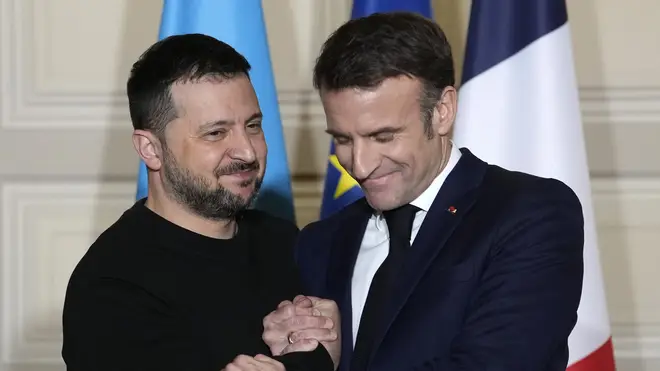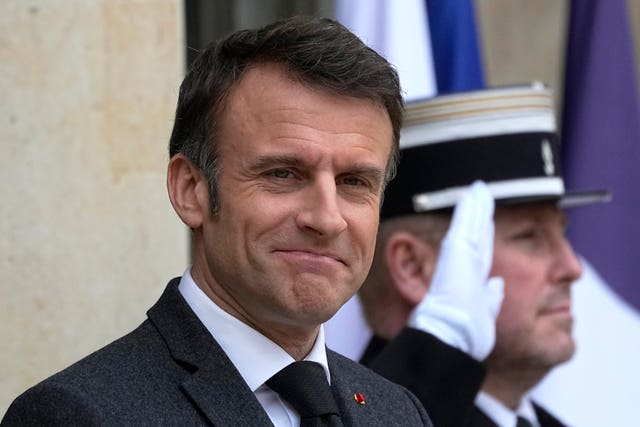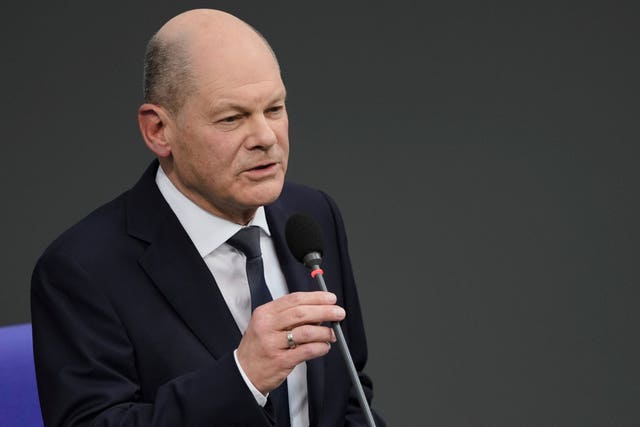
Shelagh Fogarty 1pm - 4pm
14 March 2024, 20:34

The French president said that ‘all options are possible’ but that the responsibility for such a move lies with Moscow.
French president Emmanuel Macron reiterated his position that sending Western troops into Ukraine should not be ruled out but said that today’s situation does not require that.
In an interview on French national television on Thursday, Mr Macron was asked about the prospect of sending Western troops to Ukraine, which he publicly raised last month in comments that prompted pushback from other European leaders.
“We’re not in that situation today,” he said, but added that “all these options are possible”.
Mr Macron said that responsibility for prompting such a move would lie with Moscow — “It wouldn’t be us” — and said France would not lead an offensive into Ukraine.

But he also said: “Today, to have peace in Ukraine, we must not be weak.”
Mr Macron’s comments came after the French parliament debated the country’s Ukraine strategy this week.
Both the National Assembly and the Senate approved in symbolic votes the 10-year bilateral security agreement signed last month between Mr Macron and Ukrainian President Volodymyr Zelensky.
Mr Macron plans to meet with German Chancellor Olaf Scholz and Polish Prime Minister Donald Tusk on Friday in Berlin in a summit meant to show unity.
Last month, the French president appeared isolated on the European stage after his remarks at a Paris conference on Ukraine prompted an outcry from other leaders.
Mr Scholz, in particular, appeared to contradict Mr Macron, saying that participants had agreed there would be “no ground troops” on Ukrainian soil sent by European states.

French officials later sought to clarify Mr Macron’s remarks and stamp down the backlash, while insisting on the need to send a clear signal to Russia that it cannot win in Ukraine.
Mr Scholz appeared dismissive of any speculation of frictions between France and Germany on Wednesday, saying he has a “very good personal relationship” with Mr Macron.
France, Germany and Poland will meet as the so-called Weimar Triangle, and the grouping is especially important now that “we are all so concerned about the terrible consequences of the Russian war of aggression on Ukraine,” Mr Scholz said.
Supporting Ukraine “is a very concrete and very practical question of whether there is enough ammunition, enough artillery, enough air defence – many things that play a major role. And discussing and advancing this co-operation once again is what is needed right now,” he said.